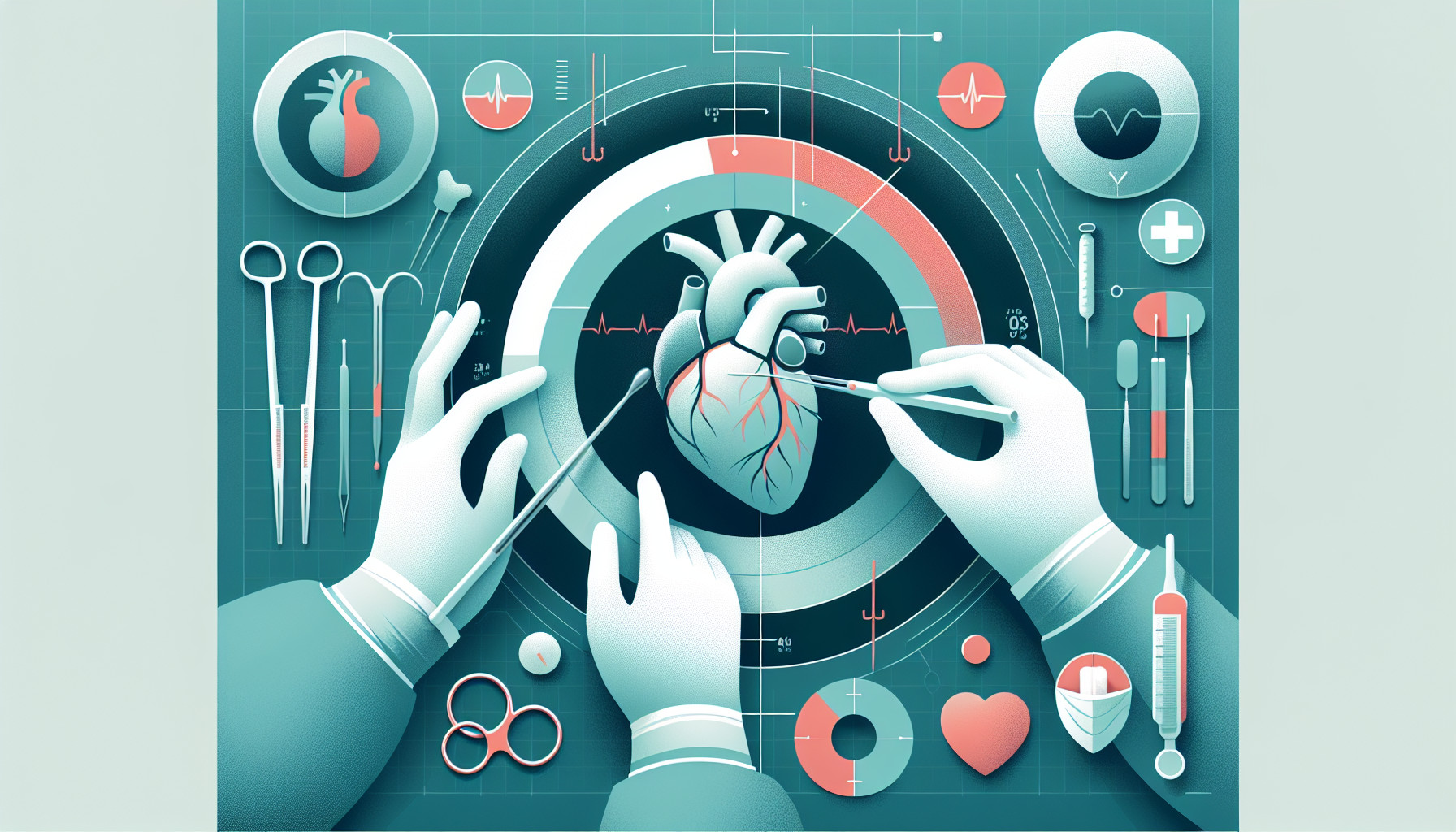Our Summary
This research paper is about a study on the effect of contact force on lesion size during a type of heart treatment called pulsed field ablation (PFA), which uses electric pulses to correct irregular heartbeats. The experiment was conducted on pig hearts using a special PFA catheter attached to a force gauge. The researchers measured the force used when the catheter contacted the heart tissue and then evaluated the size of the resulting lesions. The study found that increasing the force of contact didn’t significantly affect the size of the lesions. The researchers conclude that the key factor in this procedure is making sure the catheter makes contact with the tissue, not how much force is used.
FAQs
- What is pulsed field ablation (PFA) and how does it work?
- What was the primary finding of the research study on the effect of contact force during PFA?
- How does the amount of force used during PFA affect the size of the lesions according to the study?
Doctor’s Tip
A helpful tip a doctor might tell a patient about cardiac ablation is to follow all pre-procedure instructions provided by your healthcare team, such as fasting before the procedure and stopping certain medications. Additionally, it is important to discuss any concerns or questions you may have with your healthcare provider before the procedure. After the procedure, follow post-procedure care instructions carefully, including resting and avoiding strenuous activities for a period of time as recommended by your doctor. Lastly, make sure to attend all follow-up appointments to monitor your recovery and overall heart health.
Suitable For
Patients who are typically recommended cardiac ablation include those with:
- Atrial fibrillation (irregular heartbeat)
- Supraventricular tachycardia (rapid heart rate)
- Ventricular tachycardia (fast heart rhythm originating in the ventricles)
- Atrial flutter (rapid heartbeat in the atria)
- Wolff-Parkinson-White syndrome (extra electrical pathway in the heart)
- Arrhythmias that have not responded to medication
- Symptoms such as dizziness, chest pain, shortness of breath, and fatigue related to their arrhythmia
Overall, patients who have been diagnosed with a specific type of arrhythmia and have not responded well to medication are often considered candidates for cardiac ablation.
Timeline
Before cardiac ablation:
- The patient will first undergo various tests and evaluations to determine the cause of their irregular heartbeats.
- Once a decision is made to proceed with cardiac ablation, the patient will be informed about the procedure and its potential risks and benefits.
- The patient may need to stop taking certain medications or avoid eating and drinking for a period of time before the procedure.
- On the day of the procedure, the patient will be prepared for surgery and given anesthesia to minimize discomfort.
During and after cardiac ablation:
- The catheter will be inserted into a blood vessel and guided to the heart where the ablation will take place.
- The doctor will use various techniques, such as radiofrequency or cryoablation, to create scars on the heart tissue that disrupt abnormal electrical signals.
- The patient may feel some discomfort or mild pain during the procedure, but it is generally well-tolerated.
- After the ablation, the patient will be monitored closely for any complications and may need to stay in the hospital for a day or two for observation.
- The patient will be advised on post-procedure care, including avoiding strenuous activities and taking prescribed medications.
- Follow-up appointments will be scheduled to monitor the effectiveness of the ablation and address any concerns or symptoms that may arise.
What to Ask Your Doctor
- What is cardiac ablation and how does it work?
- Is cardiac ablation the best treatment option for my condition?
- What are the potential risks and complications associated with cardiac ablation?
- How experienced are you in performing cardiac ablation procedures?
- How long will the procedure take and what is the recovery process like?
- Will I need to take any medications or make lifestyle changes after the procedure?
- How successful is cardiac ablation in treating my specific heart condition?
- What are the chances of needing additional treatments or procedures in the future?
- Are there any alternative treatments or procedures available for my condition?
- What follow-up care or monitoring will be needed after the procedure?
Reference
Authors: Mattison L, Verma A, Tarakji KG, Reichlin T, Hindricks G, Sack KL, Önal B, Schmidt MM, Miklavčič D, Sigg DC. Journal: J Cardiovasc Electrophysiol. 2023 Mar;34(3):693-699. doi: 10.1111/jce.15813. Epub 2023 Jan 20. PMID: 36640426
